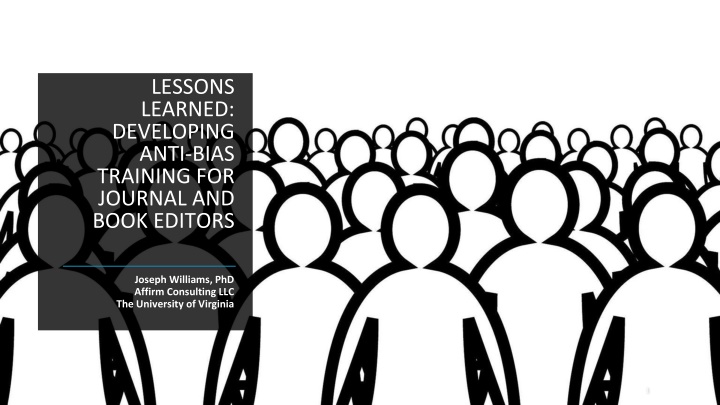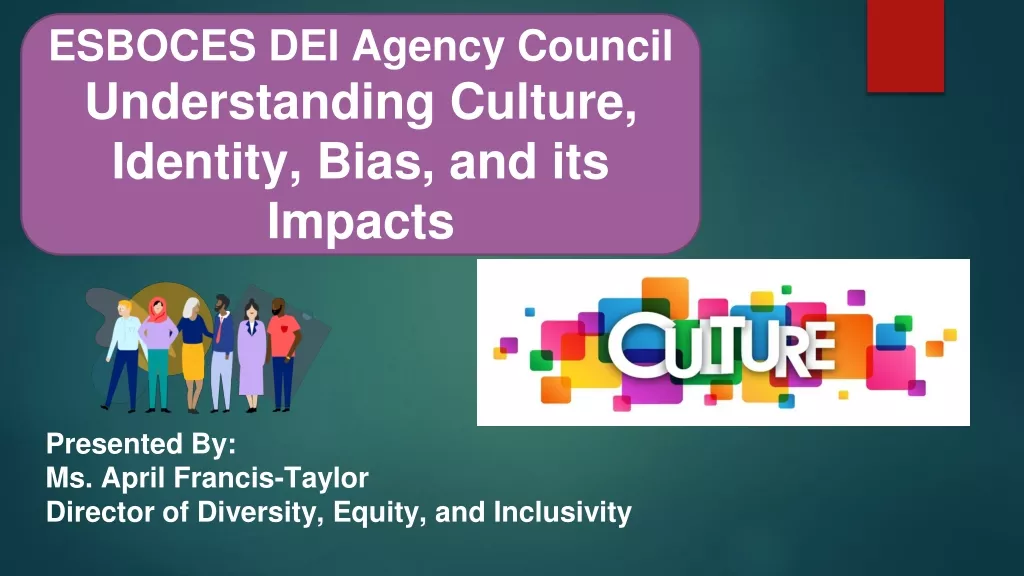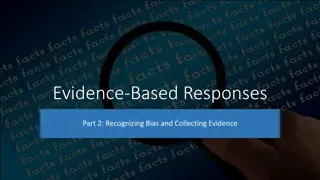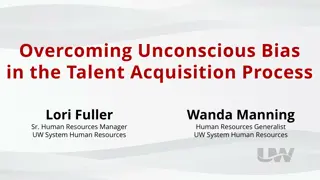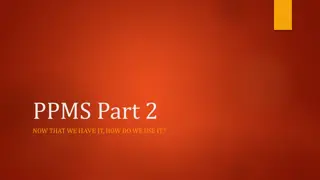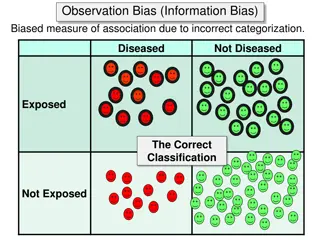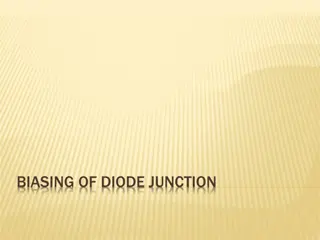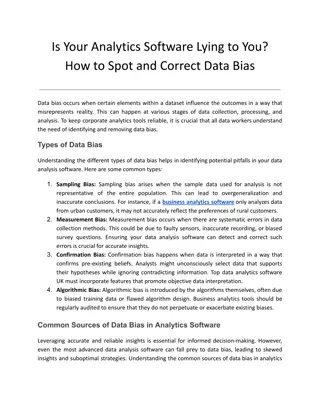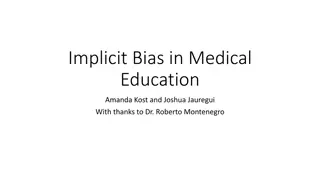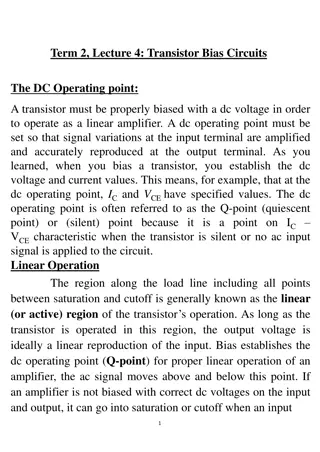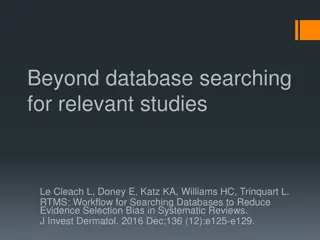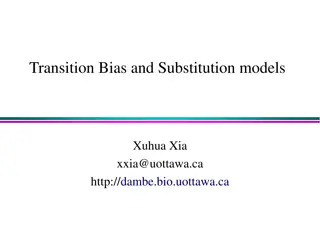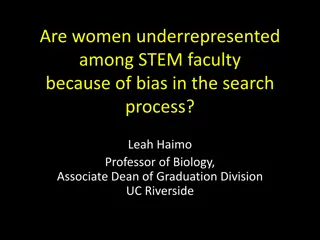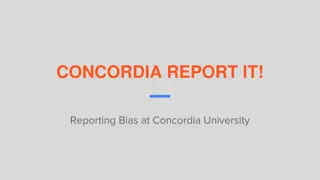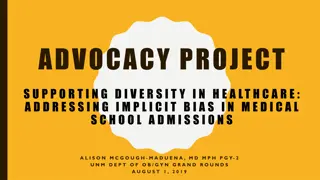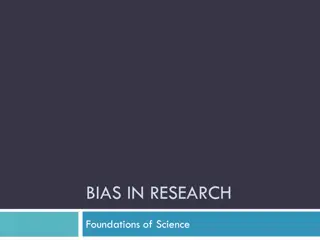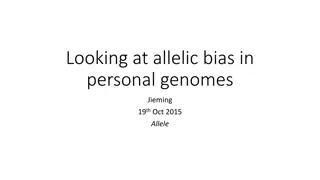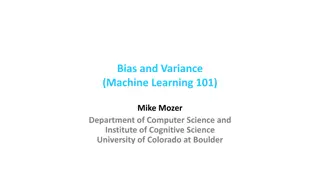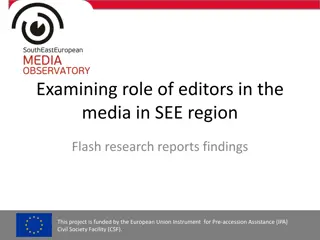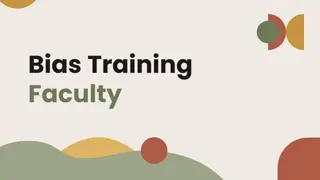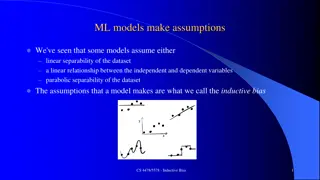Developing Anti-Bias Training Framework for Editors
Explore the framework for developing anti-bias training tailored for journal and book editors. Learn key steps such as problem description, intention setting, engaging allies, content commissioning process, reflection questions, and identifying who is involved. Dive into pre-work reflection exercises to address specific issues and set clear intentions to raise awareness, build knowledge, and develop strategies for combating bias in editing.
Download Presentation

Please find below an Image/Link to download the presentation.
The content on the website is provided AS IS for your information and personal use only. It may not be sold, licensed, or shared on other websites without obtaining consent from the author.If you encounter any issues during the download, it is possible that the publisher has removed the file from their server.
You are allowed to download the files provided on this website for personal or commercial use, subject to the condition that they are used lawfully. All files are the property of their respective owners.
The content on the website is provided AS IS for your information and personal use only. It may not be sold, licensed, or shared on other websites without obtaining consent from the author.
E N D
Presentation Transcript
LESSONS LEARNED: DEVELOPING ANTI-BIAS TRAINING FOR JOURNAL AND BOOK EDITORS Joseph Williams, PhD Affirm Consulting LLC The University of Virginia 1
FRAMEWORK FOR DEVELOPING ANTI- BIAS TRAININGS 1. Describe the problem 2. Set a clear intention. 3. Describe who is involved. 4. Critical reflect on what contribution you want to make to the problem you identified 5. Cultivating Allies
COMMISSIONING Inviting Content/Authors o SUBMISSION Journal/Book Scope, Author Guidelines, Unwritten Criteria? O EDITORIAL REVIEW Editorial Pre- Screening Decision . EPUBLICATI PROCESS ON TH PEER REVIEW Selecting Reviewer Reviewer Evaluation and Comments Managing Reviewer comments Peer Review FINAL DECISION Using Reviewers Comments Sharing Decision Letter Handling author appeals Final Decision Post POST-PUBLICATION Ethical or Scientific Concerns Publisher-level Considerations Publicatio n
PRE-WORK REFLECTION QUESTIONS EXERCISE 1 Describe the problem. 1. What is the specific problem being addressed? 2. How did things get to be the way they are? 3. What are some of the attitudes and beliefs (prevailing ideologies) that have led to this situation? 4. What are some things that keep the situation the way it is? 5. How and why has this work been deprioritized in the past? 6. What would the journal or book publisher have to change for the situation to be different?
PRE-WORK REFLECTION QUESTIONS EXERCISE 1 Set Clear Intentions 1. Am I looking to raise awareness about the problem I identified? 2. Am I looking to build knowledge about the problem I identified? 3. Am I looking to develop skills/strategies on how to address the problem I identified?
PRE-WORK REFLECTION QUESTIONS EXERCISE 2 Describe who is involved. 1. Who is affected by the problem, and how are they affected? 2. Who gains (benefits) from the situation the way it is now? 3. Who loses? 4. Who sees this as a problem? 5. Who might feel threatened by an attempt to erase this problem? 6. Who is doing something about the problem, and what are they doing? 7. Why does this problem exist? 1. Group Base 2. Institutional (organizational) Based
PRE-WORK REFLECTION QUESTIONS EXERCISE 3 Role Definition Reflection Questions 1. What contribution do you want to make to the specific institutional bias you ve identified? 2. What power/leverage/influence do you have within the affected institution? 3. How does your current professional role interact with the institutional bias you ve targeted for erasure? 4. How committed are you to staying the course during the bias erasure journey? 5. What are you willing to sacrifice to ensure the success of this endeavor? 6. Are you willing to personally champion this cause? 7. What credibility do you have, or can you establish to represent this cause authentically?
PRE-WORK REFLECTION QUESTIONS EXERCISE 4 Cultivating Allies Reflection Questions 1. What is my message? (Hint: It s about the institutional bias you ve identified.) 2. How will I handle objections and naysayers? 3. How will I communicate my level of commitment? 4. How will I make space for others to participate with me?
Joseph M. Williams, Ph.D Affirm Consulting, LLC. Associate Professor of Education University of Virginia jmw5dj@Virginia.edu THANK YOU 9
